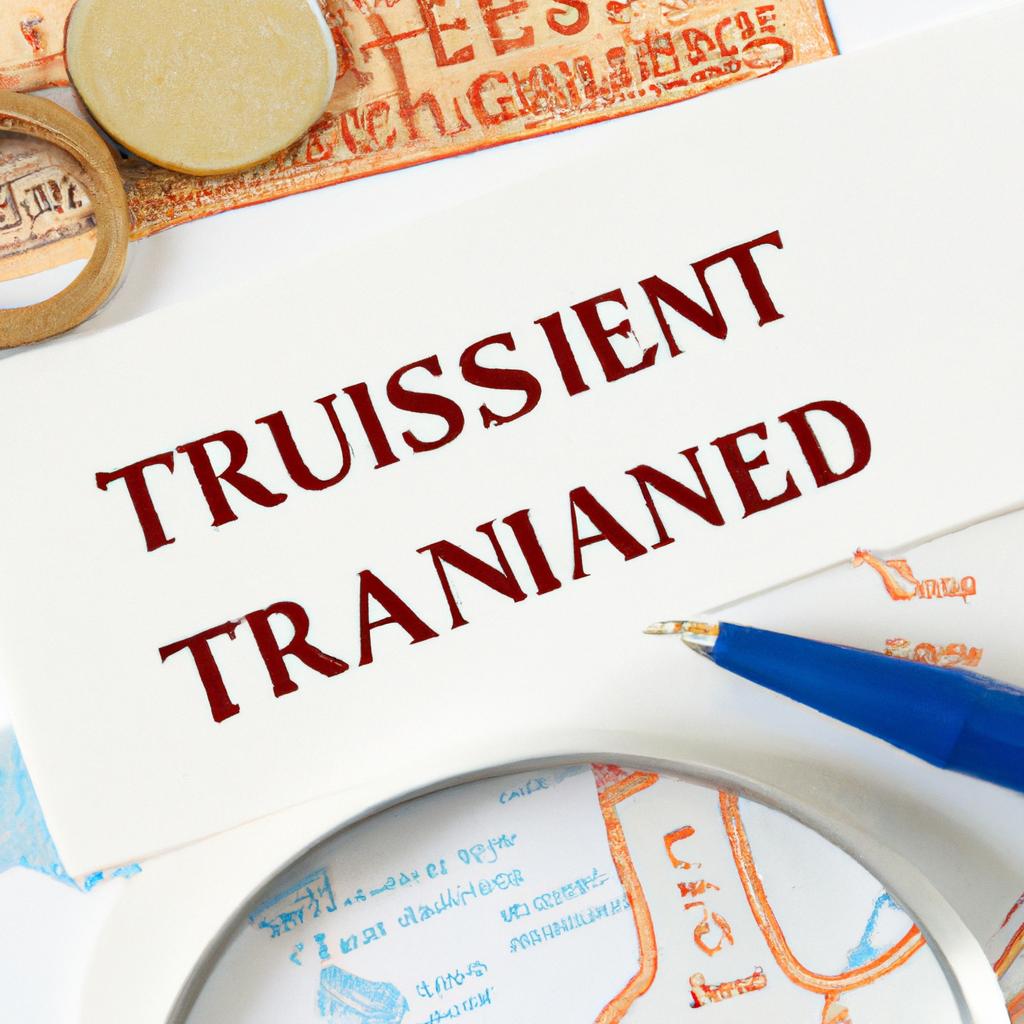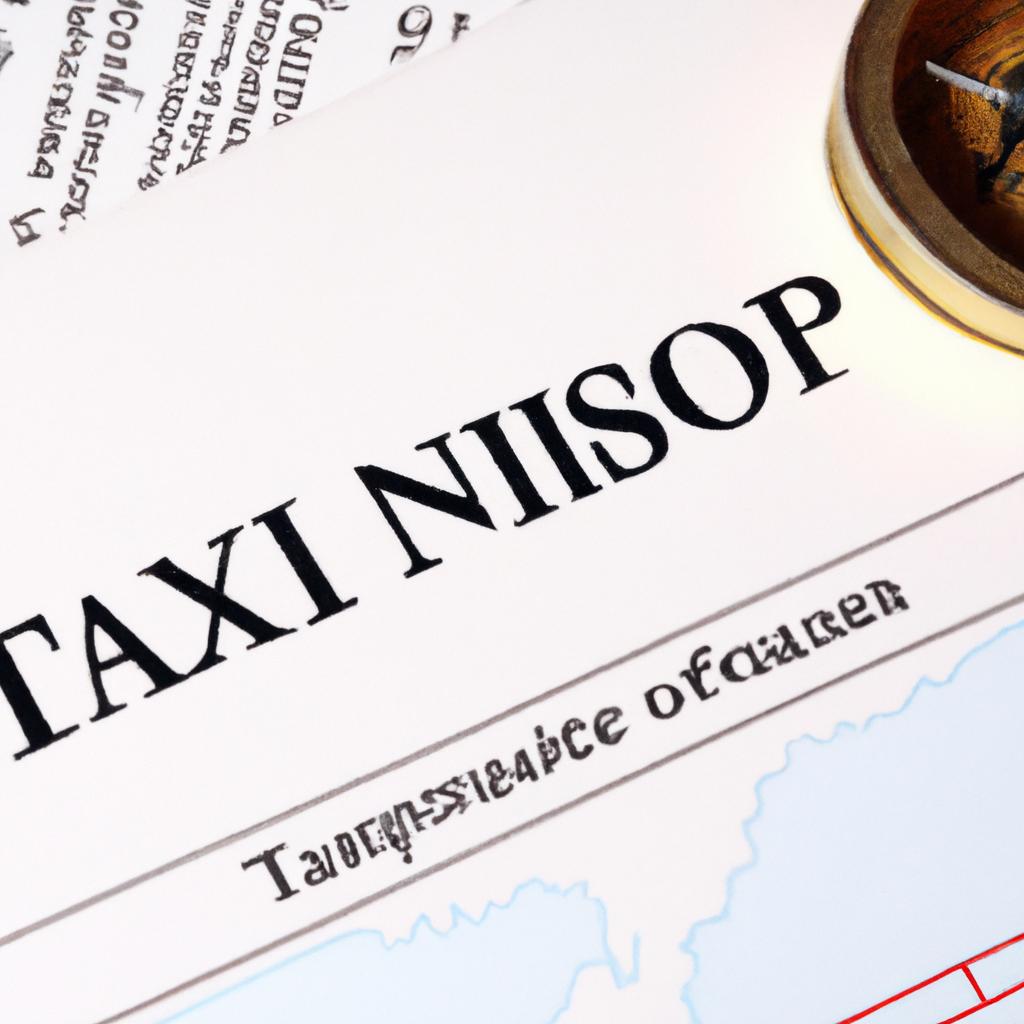Welcome to Morgan Legal Group, where our experienced team of attorneys specializes in estate planning, probate, elder law, Wills, and trusts. Today, we delve into the intricate world of creating a foreign trust. As seasoned professionals in the legal field, we understand the complexities and nuances involved in establishing a trust beyond domestic borders. Join us as we navigate the process of forming a foreign trust and explore the benefits and considerations that come with this unique estate planning tool.
Establishing a Foreign Trust Under United States Law
Creating a foreign trust under United States law requires careful consideration and adherence to specific legal requirements. When establishing a foreign trust, it is essential to follow the proper procedures to ensure compliance with the law and protect the assets held in the trust.
Some key steps to take when creating a foreign trust include:
- Choosing the proper jurisdiction for the trust
- Appointing a trustee with a strong understanding of both US and foreign laws
- Drafting a comprehensive trust agreement that clearly outlines the terms and conditions of the trust
- Ensuring compliance with tax reporting requirements for foreign trusts

Key Considerations When Setting Up a Trust Overseas
When setting up a trust overseas, there are several key considerations that must be carefully evaluated to ensure the trust is properly established and structured. One important factor to consider is the choice of jurisdiction for the trust, as different countries have varying laws and regulations regarding trusts. It is crucial to select a jurisdiction that offers favorable tax treatment, asset protection, and legal stability for the trust.
Another crucial consideration when setting up a trust overseas is selecting the right trustee. The trustee plays a vital role in managing the trust assets and carrying out the terms of the trust. It is important to choose a trustee who is reliable, experienced, and trustworthy. Additionally, it is essential to carefully draft the trust deed to clearly outline the purpose of the trust, the beneficiaries, and the distribution of assets. Seeking professional legal advice from a knowledgeable attorney with experience in international trusts is highly recommended to ensure the trust is established properly and in compliance with all applicable laws and regulations.

Navigating Tax Implications When Creating a Foreign Trust
can be a complex process that requires careful consideration of various factors. It is important to understand the potential tax consequences of establishing a foreign trust, as well as the reporting requirements that may apply. One key consideration is whether the trust will be classified as a grantor trust or a non-grantor trust for tax purposes.
When creating a foreign trust, it is essential to consider the following tax implications:
- Taxation of Trust Distributions: Depending on the nature of the distributions made from the trust, they may be subject to income tax in the jurisdiction where the trust is located.
- Reporting Requirements: There are various reporting requirements that apply to foreign trusts, including the filing of Form 3520 and Form 3520-A with the IRS to report certain transactions and to provide information about the trust’s activities.
- Tax Treaties: It is important to consider whether there is a tax treaty between the United States and the jurisdiction where the trust is located, as this may impact the taxation of the trust and its distributions.
- Beneficiary Taxation: The taxation of trust distributions received by beneficiaries can vary depending on the nature of the distributions and the tax laws of the jurisdiction where the beneficiaries are located.

Strategies for Ensuring Compliance and Asset Protection with Offshore Trusts
One of the key is to carefully select the jurisdiction in which the trust will be established. Jurisdictions with strong privacy laws and a favorable legal environment for trusts are ideal for asset protection purposes. It is important to work with experienced legal professionals who can advise on the best jurisdiction based on the specific needs and goals of the trust.
Another important strategy is to carefully plan and structure the trust to ensure compliance with relevant laws and regulations. This includes clearly defining the terms of the trust, appointing a reputable trustee, and regularly reviewing and updating the trust as needed. Additionally, it is essential to keep detailed records and documentation of all trust activities to demonstrate compliance with relevant requirements. By following these strategies, individuals can create a foreign trust that provides both asset protection and peace of mind.
| Benefits of Offshore Trusts | Considerations |
|---|---|
| Asset protection | Legal fees |
| Tax advantages | Jurisdiction selection |
| Privacy | Compliance with laws |
Q&A
Q: What is a foreign trust?
A: A foreign trust is a legal entity created outside of one’s home country to hold assets on behalf of beneficiaries.
Q: Why would someone want to create a foreign trust?
A: People may create a foreign trust to protect their assets, reduce taxes, or ensure privacy and confidentiality.
Q: How can someone create a foreign trust?
A: To create a foreign trust, one must typically work with a legal advisor who specializes in international tax and trust laws.
Q: What are some important considerations when setting up a foreign trust?
A: It is crucial to carefully consider the tax implications, legal requirements, and potential privacy concerns when creating a foreign trust.
Q: Are there any risks associated with creating a foreign trust?
A: There can be risks involved, such as potential legal challenges or regulatory scrutiny, so it is important to seek professional advice before establishing a foreign trust.
The Way Forward
Creating a foreign trust can be a complex and intricate process, but with the right guidance and resources, it is certainly attainable. By following the steps outlined in this article, you can successfully establish a trust that meets your financial goals and legal obligations. Remember to consult with legal and financial professionals to ensure that your trust is structured properly and complies with all relevant laws and regulations. With careful planning and attention to detail, you can create a foreign trust that provides you and your beneficiaries with peace of mind for years to come.

